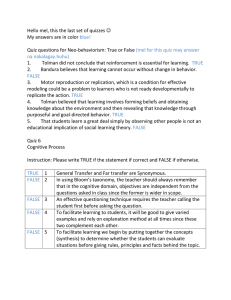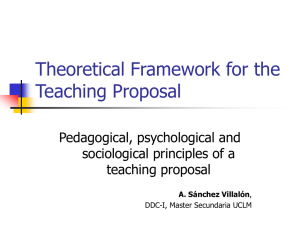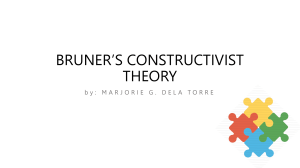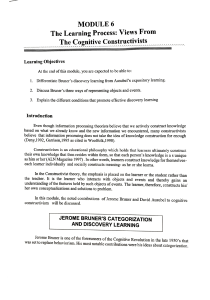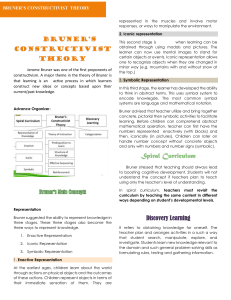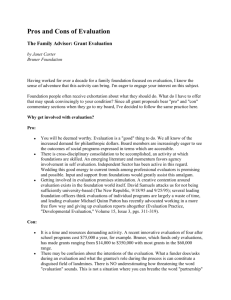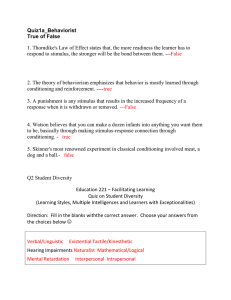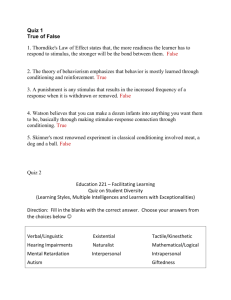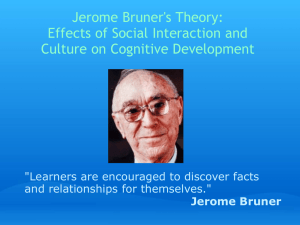Intellectual Exercise - ee
advertisement
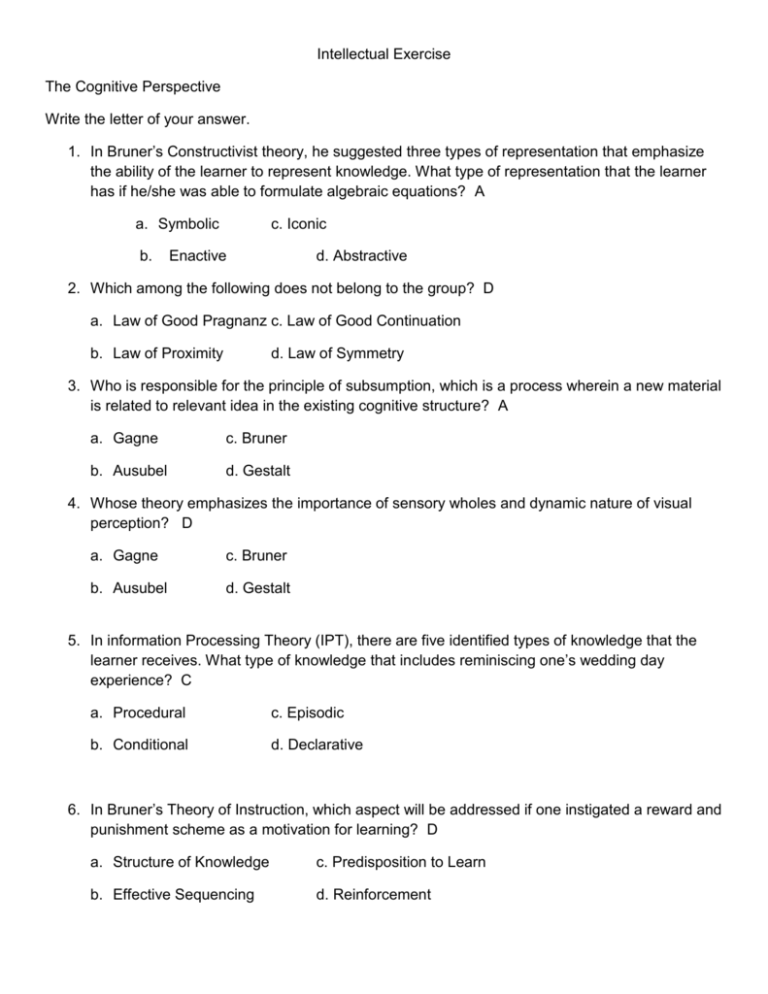
Intellectual Exercise The Cognitive Perspective Write the letter of your answer. 1. In Bruner’s Constructivist theory, he suggested three types of representation that emphasize the ability of the learner to represent knowledge. What type of representation that the learner has if he/she was able to formulate algebraic equations? A a. Symbolic b. c. Iconic Enactive d. Abstractive 2. Which among the following does not belong to the group? D a. Law of Good Pragnanz c. Law of Good Continuation b. Law of Proximity d. Law of Symmetry 3. Who is responsible for the principle of subsumption, which is a process wherein a new material is related to relevant idea in the existing cognitive structure? A a. Gagne c. Bruner b. Ausubel d. Gestalt 4. Whose theory emphasizes the importance of sensory wholes and dynamic nature of visual perception? D a. Gagne c. Bruner b. Ausubel d. Gestalt 5. In information Processing Theory (IPT), there are five identified types of knowledge that the learner receives. What type of knowledge that includes reminiscing one’s wedding day experience? C a. Procedural c. Episodic b. Conditional d. Declarative 6. In Bruner’s Theory of Instruction, which aspect will be addressed if one instigated a reward and punishment scheme as a motivation for learning? D a. Structure of Knowledge c. Predisposition to Learn b. Effective Sequencing d. Reinforcement 7. What type of advance organizer that looks over a new material in order to extract the general thought? C a. Narrative c. Skimming b. Expository d. Graphic 8. What theory emphasizes the need for different internal and external conditions for each type of learning? C a. Gagne c. Bruner b. Ausubel d. Gestalt 9. In Gagne’s Conditions for Learning, what event of instruction was used when the teacher asked the student to a recapitulation of a previous lesson? C a. Presenting the Stimulus c. Stimulating recall of prior learning b. Gaining Attention d. Providing learner guidance 10. Which law or principle in Gestalt’s psychology that focuses on the perception of similar elements being part of the same form? B a. Law of Proximity c. Law of Good Continuation b. Law of Similarity d. La w of Closure
